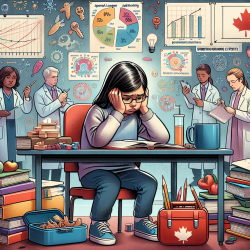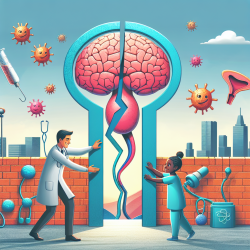Introduction
In the realm of speech-language pathology, the focus often rests on creating impactful outcomes for children. This passion for positive results can be significantly enhanced by integrating findings from recent research into practice. The study titled Adverse and benevolent childhood experiences in Posttraumatic Stress Disorder (PTSD) and Complex PTSD (CPTSD): implications for trauma-focused therapies provides critical insights that can transform how practitioners approach trauma-focused therapies.
Understanding the Research
The study, conducted by Karatzias et al., aimed to explore the relationship between adverse and benevolent childhood experiences and their impact on PTSD and CPTSD symptoms. Using data from 275 trauma-exposed individuals, the researchers found that adverse childhood experiences indirectly affect PTSD and CPTSD symptoms through lifetime trauma exposure. In contrast, benevolent childhood experiences directly predicted CPTSD symptoms.
Key Findings
- Adverse childhood experiences have a stronger indirect effect on PTSD symptoms through lifetime trauma exposure.
- Benevolent childhood experiences directly predict lower CPTSD symptoms.
- Integrating positive childhood experiences in therapy can enhance recovery from traumatic stress.
Implications for Practitioners
For practitioners working with children, these findings underscore the importance of not only addressing adverse experiences but also leveraging positive experiences to foster resilience and recovery. Here are some practical steps to incorporate these insights into your practice:
- Assessment: Include questions about positive childhood experiences in your assessments to get a holistic view of the child's background.
- Intervention Design: Develop interventions that incorporate positive memories and experiences to counterbalance the effects of trauma.
- Family Involvement: Engage caregivers in the therapeutic process to reinforce positive experiences and relationships.
Encouraging Further Research
While the study provides valuable insights, it also highlights the need for further research. Understanding how benevolent experiences can be systematically integrated into existing trauma-focused therapies could open new avenues for effective interventions.
Conclusion
By embracing a data-driven approach and integrating both adverse and benevolent childhood experiences into therapeutic practices, practitioners can create more comprehensive and effective interventions. This not only enhances the recovery process but also empowers children to overcome the effects of trauma.
To read the original research paper, please follow this link: Adverse and benevolent childhood experiences in Posttraumatic Stress Disorder (PTSD) and Complex PTSD (CPTSD): implications for trauma-focused therapies.










